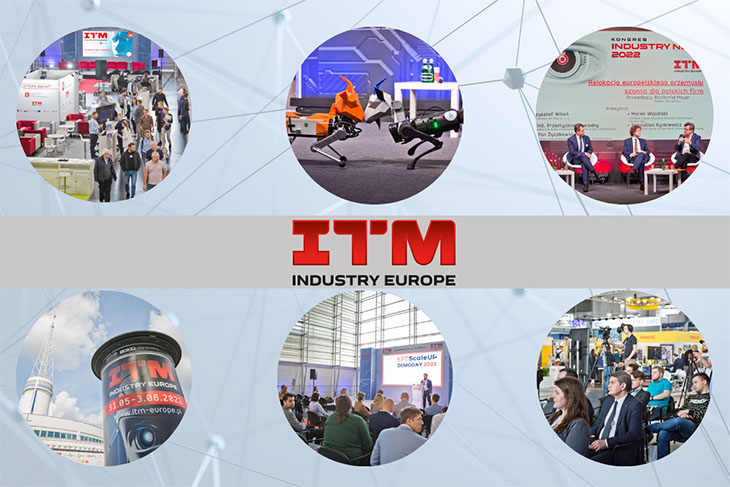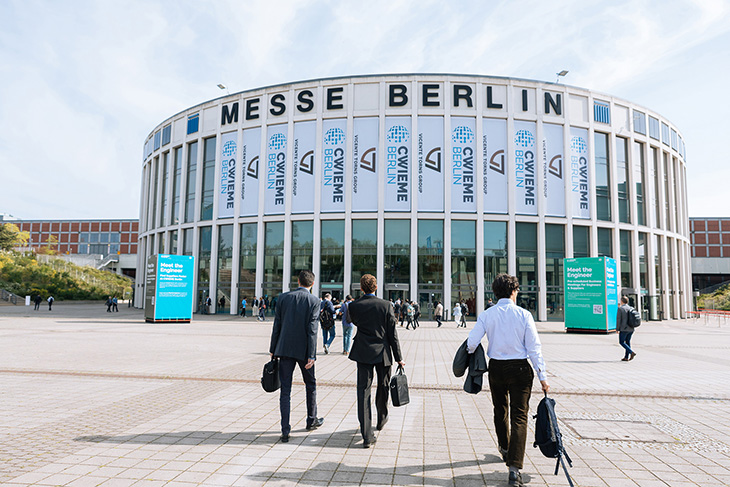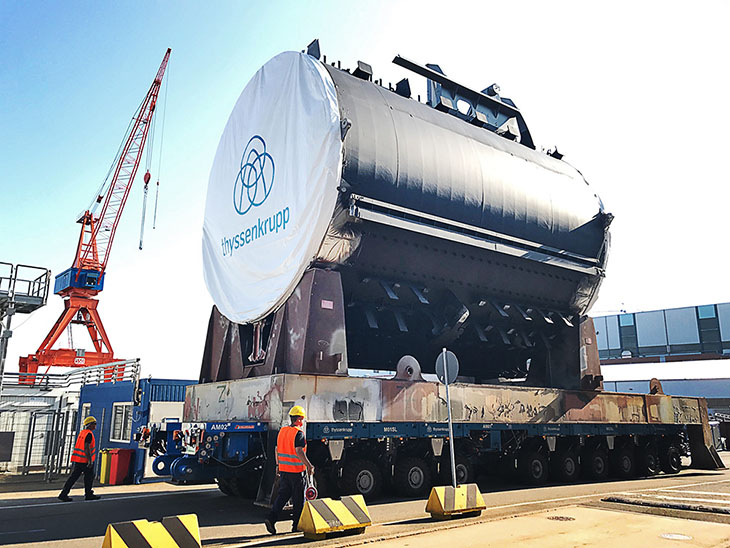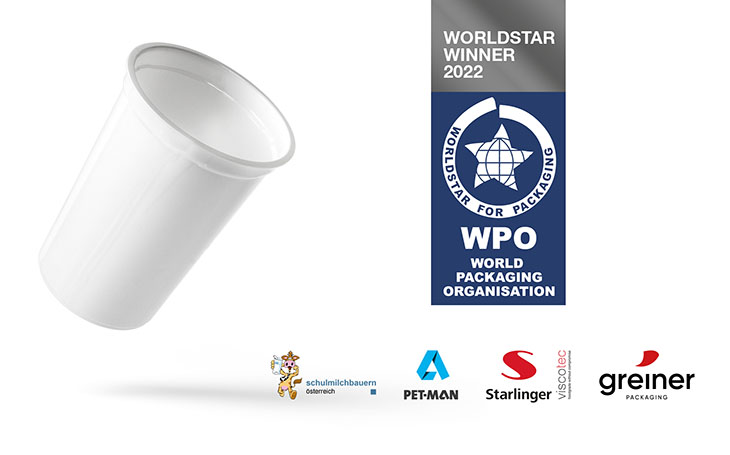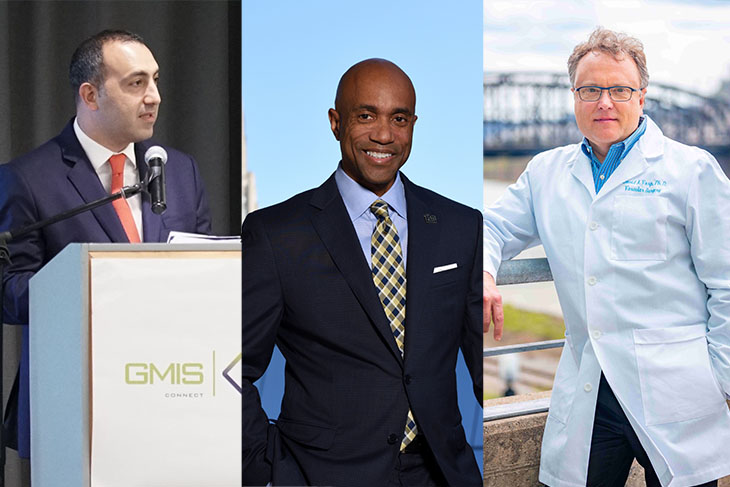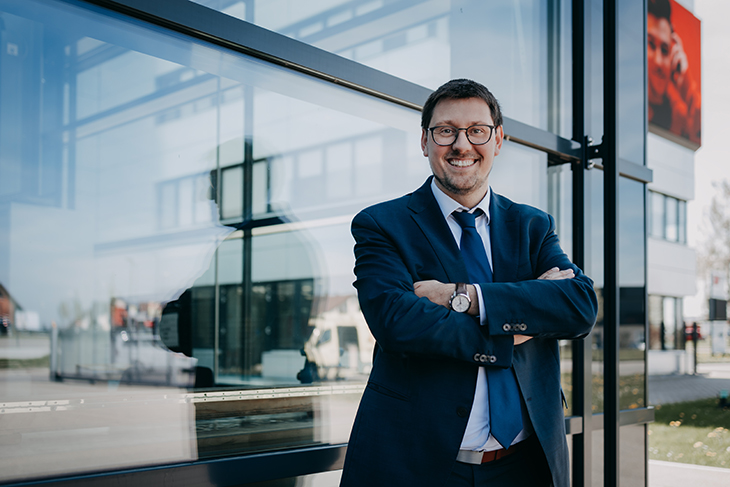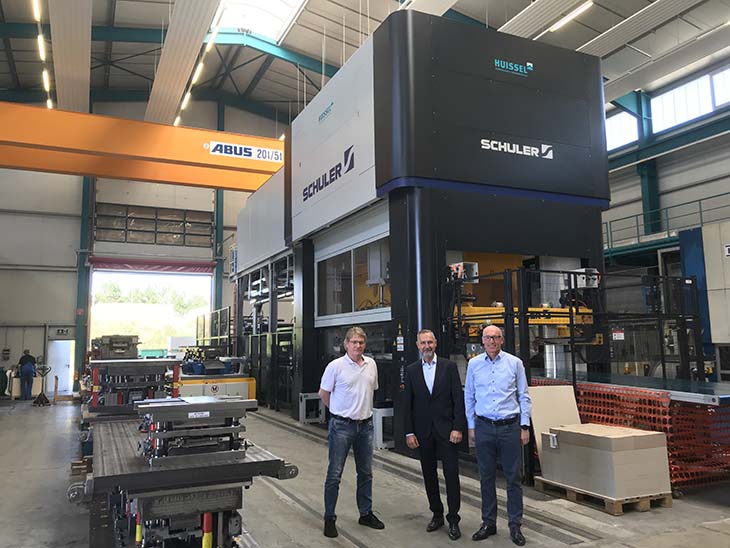The energy of business “face to face” meetings is back in full force at MTP Poznań Expo. The exhibition halls were filled with modern machines and robots, and there were numerous solutions for the future presented. Some of them will only be implemented by companies in the industrial sector, but their history began right here in Poznań. The offer of nearly six hundred exhibitors at the ITM INDUSTRY EUROPE block acted like a magnet. The event was visited by 11,687 participants. These were four days full of innovation, expert knowledge and business ideas in these turbulent times.
'Both the pandemic and the war very much changed the pattern of economic relations. The world today sees Poland as a place where it can find a reliable partner, a supplier and a producer of high quality products. Seeing what is on the stands today, we will surely find it in factories in a few years,' said Tomasz Kobierski, President of Grupa MTP at the inauguration of the ITM INDUSTRY EUROPE trade fair.
During this year's edition, eight Gold Medals of Grupa MTP were awarded to the most innovative products. ACANTHUS AUREUS prizes were also awarded for the best arranged trade fair stands - six to the exhibitors at the ITM INDUSTRY EUROPE Fair, and one to the exhibitor at Modernlog.
The extensive exhibition of ITM INDUSTRY EUROPE 2022 allowed us to learn about current trends in all key industries. The flagship offer of the fair included, among other things: Metalworking machines, Tools, Industrial automation, Robotics, Metallurgy, Foundry, Welding and cutting, Surface treatment, Additive technologies, Software, Industrial metrology. Two specially designated zones were also arranged: Smart Factory and Startup Zone.
Industry opportunities in unstable times
The second edition of the Industry Next Congress was held under the motto: A Year of Challenges for Polish Industry. Experts discussed the challenges faced by companies operating in the industrial processing industries in the context of perturbations on the raw materials market. Representatives of leading national institutions and organisations of the sector discussed the relocation of European industry and the related opportunities for Polish companies, as well as new export directions. As Stefan Życzkowski, the Chairman of the Supervisory Board, Polish Automation and Robotics Forum, noted, 'Recent years and the changing reality have shown that it is now better to prepare a 3-year strategy instead of a 5-year strategy. It is also necessary to handle the capital skilfully. It must be remembered, however, that the crisis is an opportunity to do things differently.
In turn, Piotr Kryjom, an expert from the Industry of the Future Platform, drew attention to the issue of care for the natural environment. He argued that one of the priorities for companies in the industrial sector is the Green Deal. 'Polish companies will be burdened with additional administrative burdens, but thanks to this they contribute to greater care for the natural environment,' he stated. At the same time, he noted that changes on the market are so rapid nowadays that previous strategies, when confronted with reality, may prove to be wrong.
Congress panellists pointed out that the foundation of a stable economy is an industry in the digital age that relies on knowledge and openness to share experience.
During the Congress, it was considered how much the war in Ukraine affected Polish companies and organisations operating in the industrial sector. 'We gained valuable knowledge as Ukrainian scientists started working for us. Ukraine, protecting its intellectual heritage, did not subject its scientific staff to compulsory military service,' noted Marcin Kraska, Vice President for Research and Development from the Łukasiewicz Research Network.
As experts argued, the war affected logistics, supply chains and the change in means of transport.
'After the outbreak of the war, we established cooperation with Ukrainian clusters, some enterprises from eastern Ukraine relocated their plants in the west of the country and cooperate with us in maintaining production,' said Sebastian Rynkiewicz, President of the Metalworking Cluster.
The problem of energy prices, supplies from the East and human resources was pointed out. Stefan Życzkowski argued that the priority now should be to diversify the supply chain, increase the number of machines and automate production processes by introducing digital solutions. The experts all agreed that the offer of the ITM INDUSTRY EUROPE fair shows how much these technologies have developed.
The panellists analysing the current geopolitical situation pointed to new opportunities and export directions for Polish industry.
'The consequences of the war affect the growing dysfunctions of our world. Let's not talk about rebuilding Ukraine now, let's win this war first for a world of freedom and our children's future. China has become a manufacturing hegemonic leader and this trend is continuing. Therefore, there should be business integration in the fight for each contract. Each partner to whom we can sell with profitability is valuable,' argued Janusz Piechociński, President of the Polish-Asian Chamber of Commerce and Industry.
'Our task is to persuade entrepreneurs to take risks and enter seemingly exotic markets. These are often cultural differences and a different understanding of business, but it is a huge opportunity. The conflict in Ukraine showed Poland in a different light, because the world saw what role our country plays in this war,' argued Łukasz Grabowski, Deputy Director of the Export Centre, Polish Investment and Trade Agency.
Direction: Digitization
Under the motto EDIH HPC4Poland - DIGITAL TRANSFORMATION OF INDUSTRY- DATAWEEK 2022 the workshops of the Industry Next Congress took place. There was also a large dose of knowledge delivered on digital twin, digital transformation of industry and IoT.
The first block of Industry Next workshops was prepared by the Poznan Science and Technology Park. Piotr Nędzewicz representing the unit spoke about the merger of several institutes of Łukasiewicz Research Network into one Poznań Institute of Technology (PIT) in January this year. 'As a result of synergy of competences, as the Poznań Institute of Technology, we can increase our research and development potential or engage in new research directions, which have not had a chance to function so far,' argued the expert. The Institute encourages commercialisation by indicating niches on the market, at the same time providing training in e.g. business modelling using its interdisciplinary know-how.
'We started our activity with a market analysis. From among various technologies at different stages of advancement, we selected 70 that promise well enough that we want to deal with them first, and 20 whose potential shows that we can already start moulding them to appear on the market later,' claimed Piotr Nowak from Łukasiewicz Research Network of the Poznań Institute of Technology, revealing the secrets of commercialization.
Joanna Redmer, President of GS1 Polska, which is a part of GS1, a global organisation developing the most widely used system of standards in the world, talked about how to combine the physical world with the digital world during the Industry Next workshop. As the expert argued, GS1 standards enable organisations to efficiently identify, capture and exchange information. She reminded the participants that barcodes are now 50 years old. She also revealed that her organisation's goal is to move from linear codes to 2D codes by 2027.
The second block of workshops was prepared by the Poznan Supercomputing and Networking Center. Krzysztof Pietrusewicz from the West Pomeranian University of Technology spoke about creating and implementing a digital transformation strategy. He compared the need to implement robotisation in companies to the consumption of Swedish herring. 'It is a myth that everyone must like it. It's just like with robotisation. Is everyone ready for it? Where is the strategy? And maybe this company needs something else? Maybe employee training or computerisation of workflows? This is what an audit is for: to check the digital maturity of companies,' the expert argued.
Krzysztof Witczak from Deloitte noted that today it is not technology that is the problem, but the localisation of an idea and its use with technology. 'Here at the fair you can see how much the world has changed. It is a world of ioT, the internet of things and robotisation, the smart grid understood in terms of components and analytics. By not following the change, we fall behind.
How important these issues are was confirmed by further expert presentations on AR digital twin visual – virtual reconfiguration of workstations in production, IoT tools and examples of their use, tools for computer simulation and AI and quality control. All these topics had one thing in common: the possibility of being implemented into industry and accelerating the digital transformation of companies.
Whoever has the data, has the power
There were also numerous interesting discussions held on the Trends for Industry Stage. What solutions to implement at the beginning of the road to Industry 4.0? What solutions to implement at the beginning of the road to Industry 4.0? Why can the automatic collection of production data help increase competitiveness? How to improve production efficiency? These are only some of the questions which COMARCH experts answered during a lecture entitled: Industry 4.0 - Three Practical Ways to Digitalize Production Companies?
'Covid has not so much forced us, as it accelerated the process of digitalization. It is hard to say that there is any ready-made recipe for implementing Industry 4.0 mechanisms. Each company is different,' said Sebastian Gleń, Business Development Manager at Cormach.
On the first day of the Fair, a debate entitled "No data, No Move" was also held on the Trends Stage. Experts from the companies: SPiID, APA, PF Electronic, Jantar, Evatronix, Aiut and 5sAutomate, associated in the Silesia Automotive & Advanced Manufacturing Cluster at Katowicka Specjalna Strefa Ekonomiczna S.A. discussed the effective planning of data collection processes from machines and people, the organisation of an efficient process of data collection, processing and use, or the product flow in the process and the automation of human-machine cooperation.
'There is a saying: whoever has statistics, has the power. I would say that whoever has data, has the power. Because on the one hand, we are talking about the obvious data – the machine tells us about the temperature, the way it works, errors, and all sorts of things, but we approach various processes in our company in such a way that first of all we need to know and understand them,' noted Sławomir Krzewiński, Auto Id Technical Manager-Jantar Sp. z o.o.
The experts drew attention to the fact that in Poland, in many cases, there is a lack not so much of new technologies as of technologists. The problem is also insufficient legal regulations regarding cobots.
Because in a startup the idea is important
As part of the exhibition, the Fair participants could familiarise themselves with the offer of a dozen or so innovative startups that can significantly contribute to the development of companies operating in the industrial sector. Krakow Technology Park hosted the Startup Zone. KPT ScaleUP has earned the title of the largest Polish industrial accelerator. This year, the visitors to the ITM INDUSTRY EUROPE Fair could personally convince themselves of the efficiency of KPT ScaleUP operations in the area of modernising the Polish economy. 'Over this long period, we have developed a wide range of forms of support for companies at every stage of development. On the one hand, we cooperate with large industrial entrepreneurs or companies, and small and medium-sized enterprises. On the other hand, the key place, among our activities, is occupied by start-ups and technology companies with very interesting ideas,' said Dorota Skotnicka, Vice-President of the Board, Krakow Technology Park.
The representatives of start-ups could share these ideas for a few days on the Trends for Industry Stage.
3D printing and scanning
Additive technologies have been accompanying ITM INDUSTRY EUROPE for years. It was the same this time; one could visit the stands of companies operating in the 3D printing industry and benefit from expert knowledge. Additive techniques in the service of humanity How to achieve breakthrough research results faster in various fields of science? - this was the topic raised by Andrzej Burgs, CEO and President of the Management Board of Sygnis S.A. during his speech delivered on the Trends for Industry Stage.
'Very often, when using 3D printing, we apply it directly, as if we were using traditional machines. And this, as a matter of fact, has to be started much earlier – at the stage of designing, the whole concept and thinking about the product,' said Andrzej Burgs, CEO and President of the Management Board of Sygnis S.A.
As the expert argued, only then can this process be optimized.
During the Fair, one of the attractions were demonstrations by SMARTTECH, which premiered the latest solution for comprehensive quality control of large objects - SMARTTECH3D Photogrammetry using a luxury model Tesla S3. Anna Gębarska, co-founder of SMARTTECH, argued that the future of metrology is in optical measurements. 'Scanners are now CMMs that no longer touch anything. Advantages of scanning? Precision - metrologically proven, Speed, Efficiency and Ease of use,' she said at the lecture delivered on the Industry Next Stage.
The TESLA demonstrations were not the only spectacular show to be enjoyed at the Fair. A unique "show" of scanning a race car using 3D Creaform laser scanners, illustrating the process of data acquisition and processing for the needs of reverse engineering, was one of the attractions prepared this year especially for the ITM INDUSTRY EUROPE Fair by ITA Polska.
Three challenges, one goal
Talents and technologies for safe infrastructure - this was the motto of the Drone Power hackathon, a unique brainstorming session that accompanied the ITM INDUSTRY EUROPE Fair for the very first time. The teams were faced with classic, robotic and conceptual challenges. They have one thing in common: creating an algorithm, technology or solution ensuring uninterrupted and safe operation of the state infrastructure. The first two challenges of the hackathon were related to energy, while the third dealt with windbreaks and breaches.
'We have 1,5 days of challenges ahead of us. I am glad that even for this short moment we managed to go out of our virtual world to the real one here at the fair,' said the project organizer, Krzysztof Kurowski from the PSNC Poznań Supercomputing and Networking Center, during the inauguration of the hackathon. The ENEA GROUP was the Main Partner of the hackathon.
Space getting closer
The dynamically developing space industry cannot function without traditional industry. The result of observing this trend was a panel discussion during the ITM INDUSTRY EUROPE Fair, organised by the Space Sector Employers' Association. 'For many people this subject is like space... distant... This shows that we need new staff, companies, and special programmes, such as the National Space Programme, which is to finance the creation of Poland's first satellite,' argued Joanna Baksalary, Space Sector Manager, ITTI Sp. z o.o.
Experts emphasized the very dynamic development of this sector. There are already 70 Polish companies operating in this sector. Paweł Lejba from the Space Research Centre (CBK) and the Borowiec Astrogeodynamic Observatory revealed to the participants that CBK has had a crisis centre for many years and has been very successful in this field and, most importantly, the results of this activity are widely applied.
'Space is one of the fastest growing technology sectors. However, this sector does not have evenly distributed strengths and capabilities. That is why recently the emphasis has been put on small and medium sized companies, start-ups, or companies with medium capitalization to join the players already present on the market and to work together on solutions, which will be the answer to global challenges,' said Anna Świderska from the European Space Agency.
How "space" solutions have been implemented in practice in everyday life was mentioned by Tomasz Zapalski from the Union of Space Sector Employees. 'Water filters, wireless headphones, led light bulbs, laser vision correction or insulin pumps – these are all solutions that were once intended for space, and now we use them in everyday life,' the expert argued.
All the panellists agreed that there is a lack of appropriate human resources and university courses that could educate space technology experts. They also pointed out the lack of awareness of company managers about the potential of the space sector and the opportunities offered by cooperation with it.
Digital twin like YETI?
The vision of a virtual world that fully replicates the reality around us is coming true. It is a door that opens up entirely new possibilities in the process of digital transformation in industry.
Digital Twin makes it possible to obtain data and use them to create a digital replica of products or the entire production environment in order to gain comprehensive knowledge of a given object, its behaviours and reactions.
Digital Twin – a vision or reality? Forecast of the development directions of robotisation in Poland, ways of financing the robotisation process of an enterprise – these are the topics of the panel organised by DBR77 at the ITM INDUSTRY EUROPE Fair.
Piotr Wiśniewski, PhD, CEO of Robot Platform DBR77, initiated the creation of the first comprehensive report on the state of robotisation in the Polish industry along with a prediction of the directions of its development in the field of robotisation and digitalisation. On the third day of the fair, on the Industry Next Stage, he presented a slide with the figure of Yeti and said: 'Everyone here has been talking about the digital twin for a few days, and Yeti is here! We found it. It is thanks to it that we connect the physical world with the virtual one.
Next to the Stage, at the DBR 77 stand, visitors could see what the factory of the future should be like according to the slogan: Future is now. A unique, virtual space was created - a virtual factory zone the solutions of which attracted crowds of visitors.
Artificial intelligence in industry
What is artificial intelligence? Genesis of industry 4.0 and analytics, AI applications in industry, the world of science vs industrial implementations - these are just some of the issues that were presented by experts during TIDK company's panel discussion.
'The more data we are able to process, the more business benefits we can get. By the end of 2022, we, as the world, will be investing three thousand nine hundred billion dollars in artificial intelligence. Companies will implement algorithms to help them make decisions,' said Łukasz Grala from TIDK, a Mentor, and futurologist passionate about data and artificial intelligence.
Michał Niemiec from SANDVIK Coromant also spoke about how artificial intelligence is important in the industrial sector, for example in machining.
'We are changing all the time. SANDVIK is moving away from a company that is seen only as a supplier of cutting tools. We are entering areas where we did not exist before – digitisation of production, automation, autonomy, artificial intelligence. Something that 5-6 years ago seemed like an uninteresting area at all for a tool company. We see the potential – maybe not yet, maybe in 10 years, but we've been on the market for more than 150 years and we believe that this direction will change in that way,' predicted the expert, Sandvik Coromant.
Pyrix and Tyrix – the robotic goats
The undoubted attraction of the ITM INDUSTRY EUROPE Fair were shows of robotic goats prepared by the Poznań University of Technology and the MAB ROBOTICS company. They made use of walking robots to which the goat heads printed using 3D technology were attached. In keeping with the Poznań tradition, every day at 12 noon the goats butted on the stage.
Grupa MTP organised a robot naming competition, which was won by the names Pyrix and Tyrix. The competition committee appreciated the reference to the names of the Poznań goats that can be admired on the tower of the Poznań Town Hall.
The ITM INDUSTRY EUROPE Fair lasted from 31 May to 3 June 2022. The following events were held simultaneously: MODERNLOG Trade Fair of Logistics, Transport and Storage, SUBCONTRACTING Industrial Cooperation Fair and FOCAST Foundry Forum.
We already know the date of the next edition of the event. The largest industry meeting in this part of Europe, ITM INDUSTRY EUROPE, will be held between 30 May and 2 June 2023.
More information at: www.itm-europe.pl









